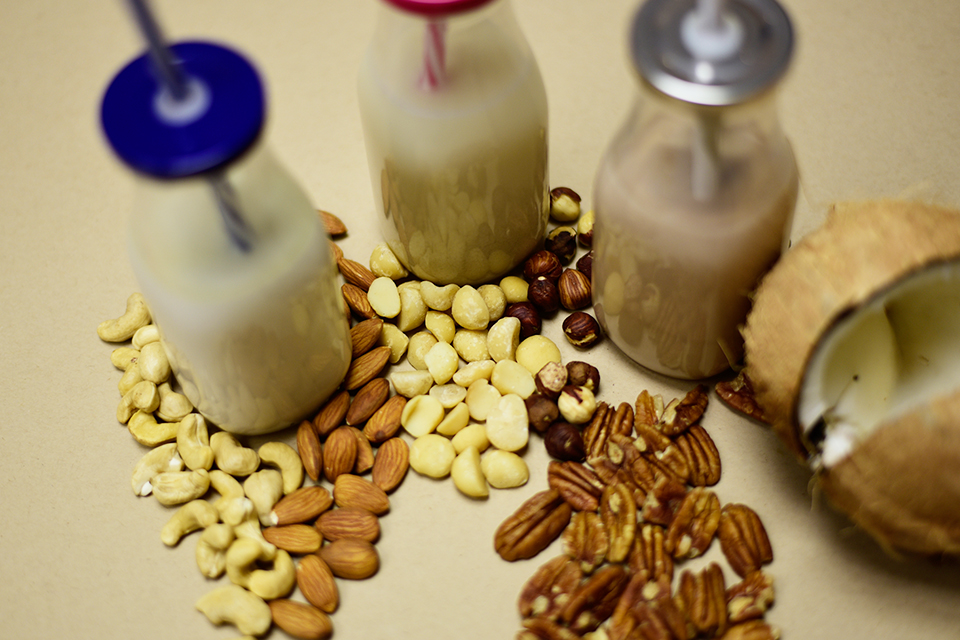Got Nut Milk?

Almond Milk
Pros:
• Almond milk offers 30 percent of the daily recommended amount of calcium and 25 percent of the daily recommended amount of vitamin D.
• It also contains 50 percent of the recommended daily amount of Vitamin E, the antioxidants that cause your skin to glow and protect it from sun damage.
• Its low saturated fat and cholesterol content helps prevent high blood pressure and heart disease.
Cons:
• With an abundance of the amino acid tyrosine, those who suffer from chronic migraines may see a spike in frequency and an increase in intensity in their migraines. These individuals should consult with their physician prior to switching to almond milk.
Coconut Milk
Pros:
• High in healthy fats, this non-dairy alternative fills you up and prevents you from snacking or over-consuming throughout the day.
• Coconut milk nourishes digestive lining through its composition of fats and electrolytes, improves overall gut health, and relieves constipation.
Cons:
• The majority of coconut milk brands come in cans. To prevent corrosion, this packaging is often lined with the synthetic compound bisphenol A, also known as BPA. BPA can seep into the package, and has been known to cause changes in hormone levels and disrupt the endocrine system.
Cashew Milk
Pros:
• Cashew milk is low in calories and fat, compared to other non-dairy options.
• Store bought products are typically fortified with vitamins such as vitamins A, B12, D and calcium.
Cons:
• Cashew milk is lower in protein than soy or cow’s milk, which may result in you not feeling as full afterwards.
Macadamia Nut Milk
Pros:
• Containing natural antioxidants such as manganese, vitamin E and zinc, macadamia nut milk is known for slowing down the process of aging by restoring damaged cells and lowering oxidative stress.
• It also has been found to lower your risk of heart disease, due to its potent combination of heart-protecting nutrients including fatty acids, plant sterols and dietary fiber.
Cons:
• Keep in mind that this nut milk lacks calcium, so it is not recommended for infants or children, who depend on calcium for proper bone growth.
Pecan Milk
Pros:
• Pecans are recognized for their high fiber and monounsaturated fat content that promote cardiovascular health and jumpstart weight loss.
• Rich in magnesium, pecan milk is also noted for having anti-inflammatory benefits.
Cons:
• This option is hard to find at grocery stores, so chances are you’ll have to make it at home. Be cautious when adding sweeteners, as to not add unnecessary sugars to your diet.
Hazelnut Milk
Pros:
• It is cholesterol-free, and an excellent source of B1, B2, B6 and vitamin E. Together, these nutrients work to boost heart health and blood flow.
• Hazelnut milk is also very shelf-stable, and does not require refrigeration.
Cons:
• This option is low in protein and fiber, and is often flavored with additives that can add an extra eight to 15 grams of sugar per serving. When choosing or making a hazelnut milk, be sure to go easy on the sweeteners and look for those low in sugar and additives.
If you're making your own nut milk at home, you'll probably want to use a sweetener. Add 1 to 2 tablespoons of honey or maple syrup to your nut milk. A popular alternative is a single tablespoon of vanilla extract or a blended mixture of 1 to 2 sweet Medjool dates.






